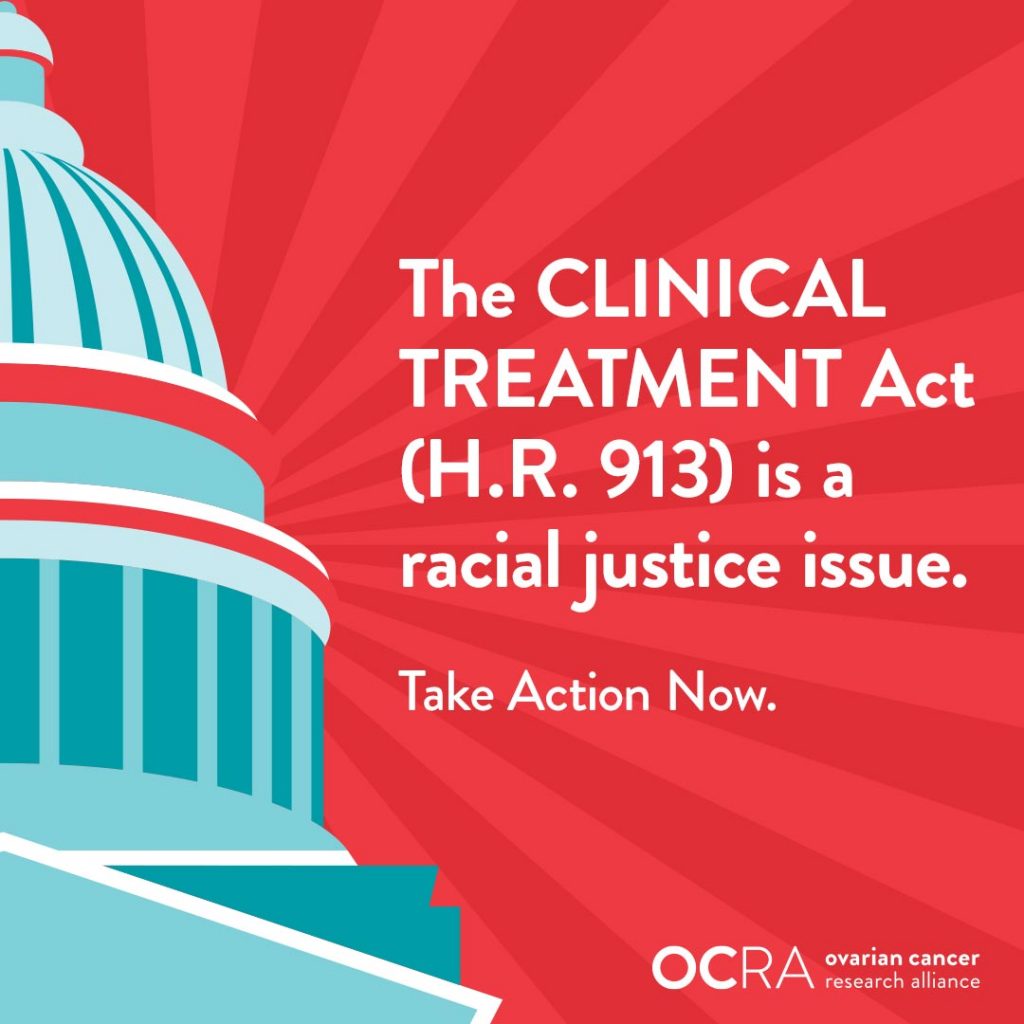
(June 16, 2020) Ovarian cancer is the deadliest gynecologic cancer and fifth leading cause of cancer deaths in women in the United States. There is no effective screening tool and early symptoms are often vague, or altogether absent. Most cases are diagnosed in later stages, when treatment options are limited and chances for survival diminished. Because of this, clinical trials often provide ovarian cancer patients the best – perhaps only – treatment option.
Unfortunately, gaps in insurance coverage and steep out-of-pocket patient costs translate into barriers to participation in clinical trials. Medicaid insures nearly one-fifth of the US population and is the only major payer that is not required by federal law to cover routine care costs associated with participation in clinical trials. For Medicare beneficiaries and for patients with private health insurance, this coverage is already guaranteed under federal law. Twelve states require their Medicaid programs to cover these costs, but that barely scratches the surface and leaves as many as 42.2 million Medicaid patients without this needed coverage.
TAKE ACTION NOW:
Tell Your Congress Member to Co-Sponsor H.R. 913 >>
The CLINICAL TREATMENT Act (H.R. 913) closes this glaring hole in the coverage landscape and guarantees coverage of the routine care costs of clinical trial participation for Medicaid enrollees with life-threatening conditions like ovarian and other gynecologic cancers.
Nearly half of Medicaid enrollees are people of color. Accordingly, guaranteeing this coverage is essential to meaningfully addressing racial and ethnic disparities across diseases and conditions. The gynecologic cancer community has been particularly affected by such disparities, with the 5-year survival rate for black women significantly lower than that of white women for each of the five main gynecologic cancer types and each stage of diagnosis. Notably, gynecologic cancers represent two of the five widest black-white mortality gaps in cancer in the U.S.
A study presented at the Society of Gynecologic Oncology’s (SGO’s) 2018 Annual Meeting on Women’s Cancer re-affirms the important role clinical trial participation plays in overcoming health disparities. The study shows similar overall survival rates for white and non-white patients with ovarian cancer participating in clinical trials. These survival rates differ significantly from that of white and non-white patients not participating in clinical trials.
For the reasons outlined above, OCRA proudly endorses H.R. 913 and urges swift passage of this important legislation by the Committee and Congress.


